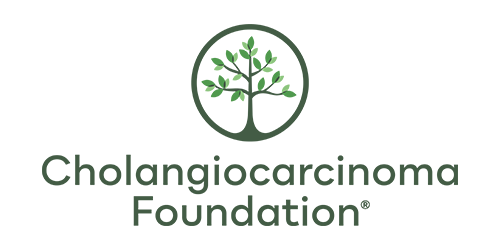Campaign for the CURE – Patty Corcoran
Hello! My name is Patty Corcoran, and I am 51 years old. In late February 2011, I was diagnosed with intra-hepatic cholangiocarcinoma. Since then, I have received numerous chemotherapy medications, undergone three rounds of radiation, and even had a 15 month break from all treatment because I was doing so well.
I have participated in two clinical trials, including the one I am on currently. In March 2015, I enrolled in a Phase II trial for the Novartis BGJ398 at MD Anderson. I experienced few ill effects, aside from diet restrictions and losing a few toenails, and the drug kept my cancer stable for about eight months.
At that point, my doctor and I decided it would be a good time for me to try to get into the NCI MATCH (Molecular Analysis for Therapy Choice), which is a clinical trial that analyzes a patient’s tumor to find mutations and match those mutations to a drug that can target them (this is the website where you can find more information: http://www.cancer.gov/about- cancer/treatment/clinical-trials). After a biopsy and what seemed like forever, I was denied because I did not have any of the genetic mutations in the ten arms of the Match Program.
Our next course of action was radiation on an aortocaval lymph node that had shown some growth. The radiation was successful on that node, but on the next scan there were a few 1 cm abdominal nodes that were new.
By this time, 13 new arms of the NCI MATCH Program were opening, and one was for the loss of PTEN, which had been detected in my most recent biopsy. I am nearly two months into the Phase 2 trial (officially called Study of P13K Beta Specific Inhibitor, GSK2636771, in patients with tumors with PTEN loss by IHC) at MD Anderson. On July 19, I will have a scan to see how well the trial is working.
I try to keep in mind quality of life may be equally important as quantity. I had already tried a number of “tried and true” chemotherapies that seem to be the usual course of action for cholangiocarcinoma. The side effects and sometimes marginal results made me consider other options. The science behind cancer treatment is moving forward quickly; sometimes the newest treatments are the best, even if they are still in the trial phase.
The biggest barrier in clinical trials is travel. Depending on trial requirements, one may need to visit the hospital conducting the study on a daily basis. I do not want to leave my family, so I have had to pass up a few trials that would require me to move to be near MD Anderson.
Luckily, the trial I am currently on requires only monthly trips from Illinois to Houston, Texas. The biggest misconception about clinical trials is some people believe they are the “last resort” for treatment. That is just not true. It’s about stepping forward and believing in your clinical research doctor that just maybe they have found something that may help you! You can stop a trial at any time, and your doctors will still be there to help guide you to what you might be eligible for next. And if the trial is working, you may have found the best treatment available to you!
The most important thing about my experience that I could share with someone considering clinical trials is to consider asking your doctor about the NCI MATCH or similar program, research your specific targetable mutations, stay in direct contact with your research trial coordinator, and stay as active and positive as you possibly can.
AND NEVER, EVER STOP BELIEVING!
